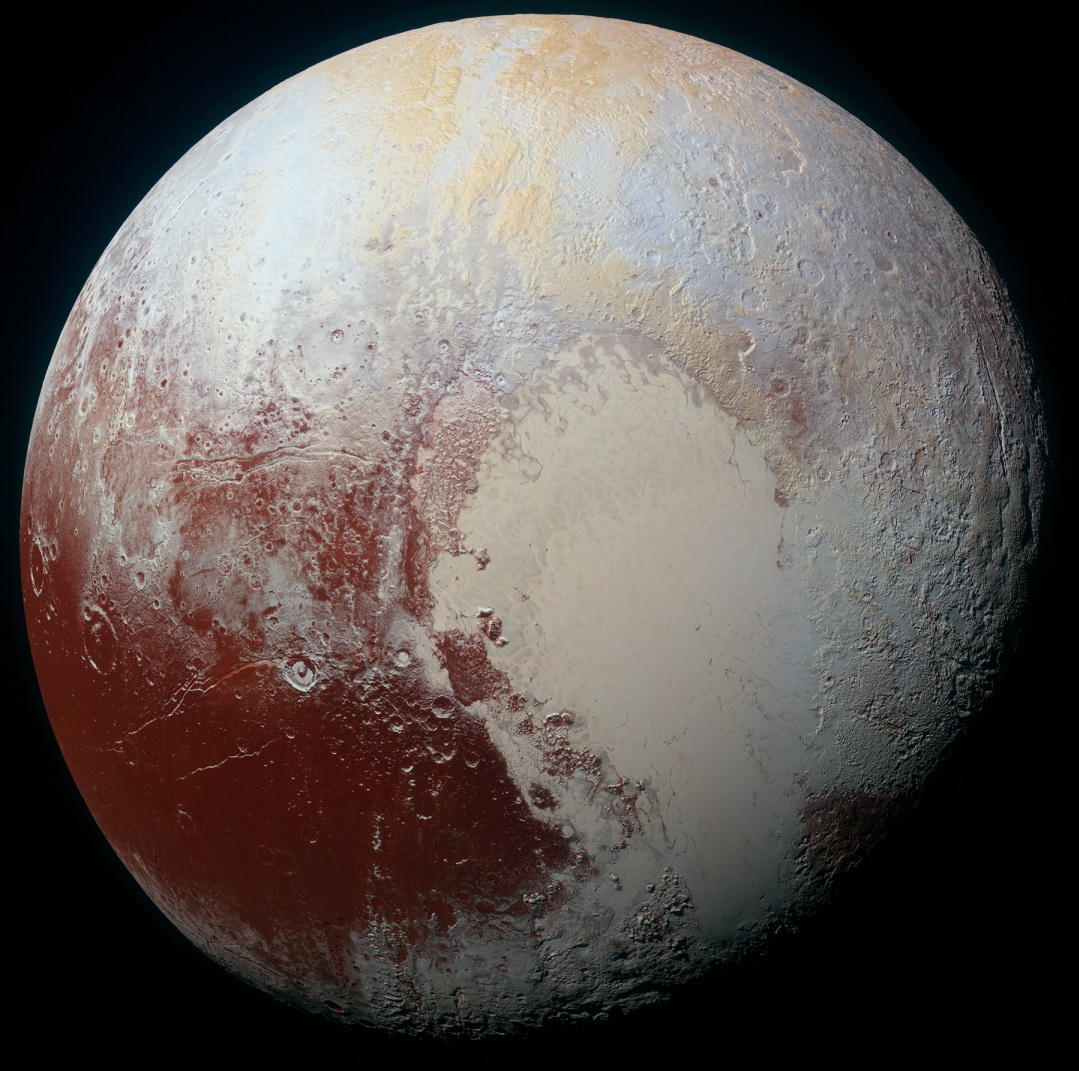Pluto is considered a planet
- Transfer
According to the idea of revising the classification of objects, the Pluto dwarf planetary trans-Neptune object needs to be restored to the lost status of a full-fledged planet of the solar system.
The results of the study are published in the journal Icarus entitled “The Reclassification of Asteroids from Planets to Non-Planets”.

In 2006, the International Astronomical Union (IAU) adopted a new definition of the planet. It included several criteria, one of which argued that such a body should have sufficient gravity to “clear” the other bodies of space in close proximity.
Pluto does not fit this definition, since it has a large and close companion, Charon, and is also approximately at the same distance from the Sun as other nearby Kuiper belt bodies .
In their new work, a group of astronomers under the leadership of Philip Metzger of the University of Central Florida (USA) conducted a voluminous systematic analysis of the scientific literature and found that the orbit cleaning criterion was used only once in 1802, and today the thought outlined in that article is considered erroneous.
Moreover, many scientists, as usual, call planets even moons like Titan (satellite of Saturn) and Europe (satellite of Jupiter).
“The definition of the MAC implies that the central object of the study of planetology, the planet, is determined on the basis of criteria that no one uses,” explains Metzger. “It also deduces from this class the second most complex and interest-related object.”
The authors conclude that in the scientific literature as early as the 1950s a consensus was established on the topic of the distinction between planets and other celestial bodies, such as asteroids.
Fundamental in this regard was the work of Gerard Kuiper, who proposed to distinguish them in the history of the formation.
In his work, Metzger argues that the definition of a planet should be based on its real properties, rather than on those that may change - such as, for example, the dynamics of a planetary orbit.
The classification of planets should be built on the principle of how large they are and how much their gravity allows them to take a spherical shape.
“And this is not just some random definition,” explains Metzger. “It turns out that this is an important stage in the evolution of the planetary body, since with its course, apparently, active geology begins in the body.”
The scientist also recalls that Pluto has an underground ocean, a multi-layered atmosphere, organic compounds, traces of ancient lakes and, in addition, several moons.
“It is more dynamic and lively than Mars,” the scientist is sure. “The only planet with more complex geology is the Earth.”
The results of the study are published in the journal Icarus entitled “The Reclassification of Asteroids from Planets to Non-Planets”.

In 2006, the International Astronomical Union (IAU) adopted a new definition of the planet. It included several criteria, one of which argued that such a body should have sufficient gravity to “clear” the other bodies of space in close proximity.
Pluto does not fit this definition, since it has a large and close companion, Charon, and is also approximately at the same distance from the Sun as other nearby Kuiper belt bodies .
In their new work, a group of astronomers under the leadership of Philip Metzger of the University of Central Florida (USA) conducted a voluminous systematic analysis of the scientific literature and found that the orbit cleaning criterion was used only once in 1802, and today the thought outlined in that article is considered erroneous.
Moreover, many scientists, as usual, call planets even moons like Titan (satellite of Saturn) and Europe (satellite of Jupiter).
“The definition of the MAC implies that the central object of the study of planetology, the planet, is determined on the basis of criteria that no one uses,” explains Metzger. “It also deduces from this class the second most complex and interest-related object.”
The authors conclude that in the scientific literature as early as the 1950s a consensus was established on the topic of the distinction between planets and other celestial bodies, such as asteroids.
Fundamental in this regard was the work of Gerard Kuiper, who proposed to distinguish them in the history of the formation.
In his work, Metzger argues that the definition of a planet should be based on its real properties, rather than on those that may change - such as, for example, the dynamics of a planetary orbit.
The classification of planets should be built on the principle of how large they are and how much their gravity allows them to take a spherical shape.
“And this is not just some random definition,” explains Metzger. “It turns out that this is an important stage in the evolution of the planetary body, since with its course, apparently, active geology begins in the body.”
The scientist also recalls that Pluto has an underground ocean, a multi-layered atmosphere, organic compounds, traces of ancient lakes and, in addition, several moons.
“It is more dynamic and lively than Mars,” the scientist is sure. “The only planet with more complex geology is the Earth.”
